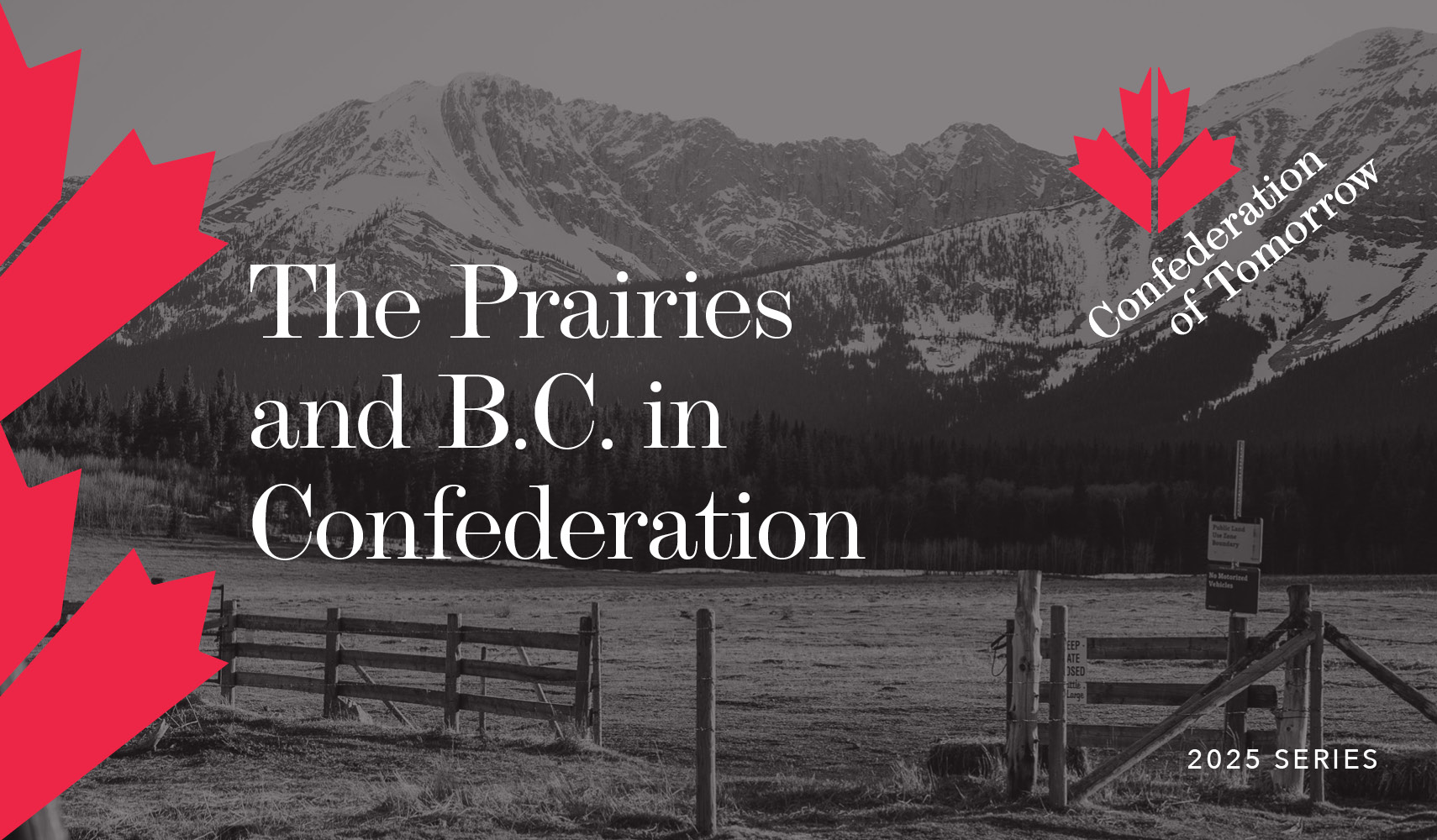The Prairies and B.C. in Confederation

The Prairies and B.C. in Confederation
This report draws on the most recent Confederation of Tomorrow survey to present an updated picture of how Western Canadians view their province’s place in the federation. The survey finds that, rather than growing, levels of dissatisfaction in the three Prairie provinces with how federalism works in Canada declined between 2024 and 2025. Despite this, two in five Westerners continue to agree that the West might be better off on its own. Moreover, while a clear majority in the region wishes to stay in Canada, the proportion that would prefer to leave is higher today than it was in the early 1980s.
The trend in British Columbia is somewhat different from that in the Prairies. There has been no similar decline in the past year in dissatisfaction with federalism in B.C. – and, in fact, some of the improvements seen at the beginning of this decade have been reversed.
Key findings
- Among regions, the Prairie provinces experienced the biggest drop in dissatisfaction with the country’s direction over the past year.
- The proportion of Prairie residents saying their province is not respected has fallen to its lowest level since the Confederation of Tomorrow series of annual surveys began in 2019.
- The proportions of Prairie residents who say that their province has less than its fair share of influence on important national decisions, and receives less than its fair share of federal spending, have both also fallen – and, in both cases, are now at their lowest levels since 2019.
- Across the region, there is a significant and consistent difference of opinion on the questions of respect, influence and fairness between those who support the main provincial conservative party in their province and those who support the provincial NDP. Moreover, the gaps between these two groups have widened over time.
- The most recent declines in dissatisfaction with federalism seen in the Prairies are not evident in British Columbia. And some of the improvements in opinions in B.C. about the province’s place in the federation, which took place between 2019 and 2022, have since been partially reversed.
- A comparison of recent survey results with those from the early 2000s shows that, over the longer term, there is no visible trend toward increasing dissatisfaction with federalism in Western Canada.
- Along with the drop within the Prairies in a series of measures of dissatisfaction with federalism, there has a modest decrease in the proportion of Prairie residents who agree that “Western Canada gets so few benefits from being part of Canada that they might as well go it on their own.”
- A clear majority of Western Canadians would prefer that the four Western provinces remain in Canada. But one in five would prefer that they combine to form an independent country. This minority is nonetheless much larger than it was in the early 1980s.
- Younger residents of the West are less likely than their older counterparts to prefer that the four provinces remain in Canada.
- In each of the four Western provinces, there is a significant difference in opinion between those who would vote for the provincial NDP, who are much more likely to prefer that their province remain in Canada, and those who support the main provincial conservative party.
- Three in four Albertans, and about seven in ten of those in the rest of the country, say they think Alberta will probably stay in Canada.
About the survey:
The Confederation of Tomorrow surveys give voice to Canadians about the major issues shaping the future of the federation and their political communities. They are conducted annually by an association of the country’s leading public policy and socio-economic research organizations: the Environics Institute for Survey Research, the Centre of Excellence on the Canadian Federation, the Canada West Foundation, the Centre D’Analyse Politique – Constitution et Fédéralisme, the Brian Mulroney Institute of Government and the First Nations Financial Management Board.
The 2025 study consists of a survey of 5,391 adults, conducted between May 1 and June 16, 2025 (92% of the responses were collected between May 6 and May 29); 90% of the responses were collected online. The remaining responses were collected by telephone (both landline and cell phone) from respondents living in the North or on First Nations reserves, or from francophone respondents in New Brunswick.
For more information, contact Dr. Andrew Parkin or the Environics Institute.
This project benefits from the financial support of the Research Support Program of the Secrétariat du Québec aux relations canadiennes (SQRC) / Ce projet bénéficie de l’appui financier du Programme d’appui à la recherche du Secrétariat du Québec aux relations canadiennes (SQRC).

Final report: The Prairies and B.C. in Confederation
Survey tables
Note: the Confederation of Tomorrow uses separate weighting factors for the overall results, the results for residents of the three territories (the North), and for Indigenous Peoples. When reporting results for the territories (individually or as a region) or for Indigenous Peoples, please use the corresponding separate tables.
- Main data tables for questions covered in this report (provinces)
- Additional tables for the territories only
Like what you're reading? With our bi-monthly e-newsletter, you can receive even more with the latest details on current projects, news, and events at the institute.
Subscribe